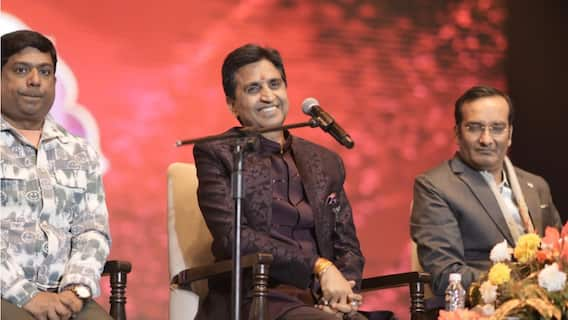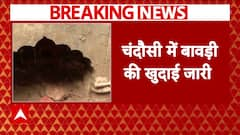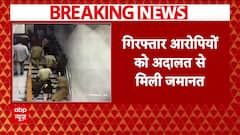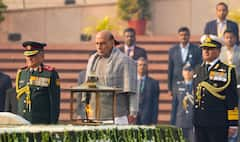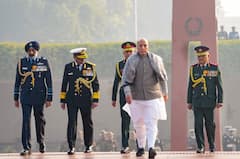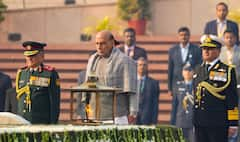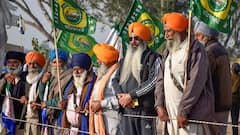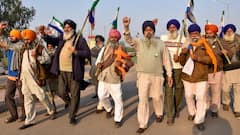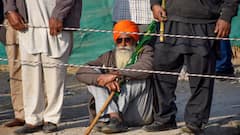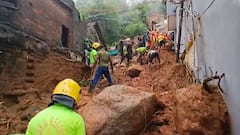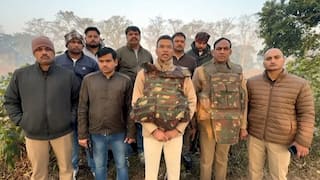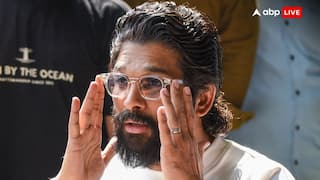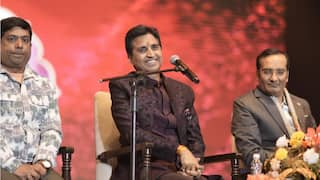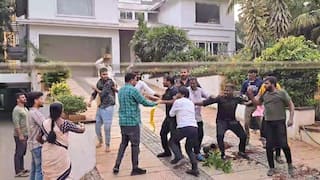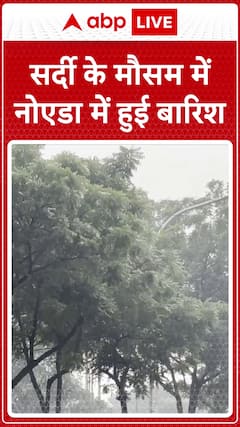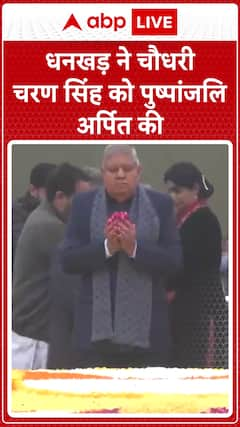Independence Day 2022: Rare Footage Of Rabindranath Tagore Singing National Anthem | WATCH
In the footage, Tagore is seen in his characteristic long kurta, familiar white hair and beard.

New Delhi: The national anthem, “Jana Gana Mana”, was composed by celebrated Bengali poet Rabindranath Tagore. It is the first stanza of the song Bharoto Bhagyo Bidhata, and on January 24, 1950, the Constituent Assembly of India, adopted it as the national anthem of independent India.
A rare video of the Nobel laureate reciting the national anthem resurfaced in the recent past. In the footage, Tagore is seen in his characteristic long kurta, familiar white hair and beard.
Watch the video here:
Facts about the national anthem:
- Formally, the national anthem takes approximately 52 seconds. A shortened version, also played occasionally, consists of the first and last lines.
- It is the first stanza of the song Bharoto Bhagyo Bidhata, which Tagore composed on December 11, 1911.
- The song was selected as the national anthem by Subhas Chandra Bose while he was in Germany.
- Before it became the national anthem, the song was played in a 1945 Indian film named “Hamrahi”.
- Jana Gana Mana is sung in the raga Alhaiya Bilawal, which is more or less like the Western major scale.
- While Captain Abid Ali translated the song to Urdu-Hindi. Rabindranath Tagore on February 28, 1919 translated the song to English.
-
- Thou art the ruler of the minds of all people,
dispenser of India's destiny.
Thy name rouses the hearts of the Punjab, Sindh, Gujarat and Maratha,
of the Dravida, Orissa and Bengal.
It echoes in the hills of the Vindhyas and Himalayas, mingles in the music of the Jamuna and Ganges
and is chanted by the waves of the Indian Sea.
They pray for thy blessings and sing thy praise.
The saving of all people waits in thy hand,
thou dispenser of India's destiny.
Victory, Victory, Victory to thee.
- Thou art the ruler of the minds of all people,
Rabindranath Tagore's Compositions Inspired Sri Lanka's National Anthem
Tagore was the first non-Eurpoean to win a Nobel Prize in Literature, in the year 1913. A poet, writer, and painter, he began writing at a very early age. It is believed that he wrote his first poem at the age of 8. He was the youngest of 13 surviving sons of Debendranath Tagore, a leader of the Brahmo Samaj, which was a new religious sect in nineteenth-century Bengal.
Tagore was knighted by the ruling British Government in 1915, but within a few years, he resigned the honour as a protest against British policies in India.
His compositions were chosen as a national anthem not only by India but also by Bangladesh, "Amar Shonar Bangla". The Sri Lankan national anthem was also inspired by his work.
Trending News
Top Headlines









